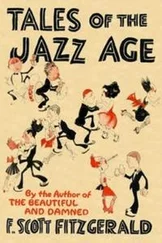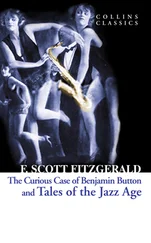A. L. O. E. - Hebrew Heroes - A Tale Founded on Jewish History
Здесь есть возможность читать онлайн «A. L. O. E. - Hebrew Heroes - A Tale Founded on Jewish History» — ознакомительный отрывок электронной книги совершенно бесплатно, а после прочтения отрывка купить полную версию. В некоторых случаях можно слушать аудио, скачать через торрент в формате fb2 и присутствует краткое содержание. Жанр: foreign_antique, foreign_prose, на английском языке. Описание произведения, (предисловие) а так же отзывы посетителей доступны на портале библиотеки ЛибКат.
- Название:Hebrew Heroes: A Tale Founded on Jewish History
- Автор:
- Жанр:
- Год:неизвестен
- ISBN:нет данных
- Рейтинг книги:4 / 5. Голосов: 1
-
Избранное:Добавить в избранное
- Отзывы:
-
Ваша оценка:
- 80
- 1
- 2
- 3
- 4
- 5
Hebrew Heroes: A Tale Founded on Jewish History: краткое содержание, описание и аннотация
Предлагаем к чтению аннотацию, описание, краткое содержание или предисловие (зависит от того, что написал сам автор книги «Hebrew Heroes: A Tale Founded on Jewish History»). Если вы не нашли необходимую информацию о книге — напишите в комментариях, мы постараемся отыскать её.
Hebrew Heroes: A Tale Founded on Jewish History — читать онлайн ознакомительный отрывок
Ниже представлен текст книги, разбитый по страницам. Система сохранения места последней прочитанной страницы, позволяет с удобством читать онлайн бесплатно книгу «Hebrew Heroes: A Tale Founded on Jewish History», без необходимости каждый раз заново искать на чём Вы остановились. Поставьте закладку, и сможете в любой момент перейти на страницу, на которой закончили чтение.
Интервал:
Закладка:
"I was taken with a giddiness – a touch of fever," replied the courtier addressed by the name of Pollux. He looked haggard and pale as he spoke.
"I marvel not – I marvel not if your blood boiled to fever-heat, as did mine!" cried Lycidas. "No generous spirit could have beheld unmoved those seven Hebrew brethren, one after another, before the eyes of their mother, tortured to death in the presence of Antiochus, because they refused to break a law which they regarded as divine!"
"Nay," replied Pollux, forcing a smile; "their fate was nothing to me. What cared I if they chose to throw away their lives like fools for an idle superstition!"
"Fools! say rather like heroes!" exclaimed Lycidas, stopping short (for he had turned and joined Pollux in his walk). "I marvel that you have so little sympathy for those gallant youths – you who, from your cast of features, I should have deemed to be one of their race."
Pollux winced, and knitted his dark brows, as if the remark were unwelcome.
"I have looked on the Olympic arena," continued Lycidas, resuming his walk, and quickening his steps as he warmed with his subject; "I have seen the athletes with every muscle strained, their limbs intertwined, wrestling like Milo; or pressing forward in the race for the crown and the palm, as if life were less dear than victory. But never before had I beheld such a struggle as that on which my eyes looked to-day, where the triumph was over the fear of man, the fear of death, where mortals wrestled with agony, and overcame it, silent, or but speaking such brave words as burnt themselves into the memory, deathless utterances from the dying! There were no plaudits to encourage these athletes, at least none that man could hear; there was no shouting as each victor reached the goal. But if the fortitude of suffering virtue be indeed a spectacle on which the gods admiringly look, then be assured that the invisible ones were gazing down to-day on that glorious arena, ay, and preparing the crown and the palm! For I can as soon believe," continued the Athenian, raising his arm and pointing towards the setting sun, "that that orb is lost, extinguished, blotted out from the universe, because he is sinking from our view, as that the noble spirits which animated those tortured forms could perish with them for ever!"
Pollux turned his head aside; he cared not that his companion should see the gesture of pain with which he gnawed his nether lip.
"It is certain that the sufferers looked forward to existence beyond death," continued the young Athenian. "One of the brothers, as he came forward to suffer, fixed his calm, stern gaze on Antiochus (I doubt not but that gaze will haunt the memory of Syria's king when his own dying hour shall arrive), and said – I well remember his words – 'Wicked prince, you bereave us of earthly life; but the King of heaven and earth, if we die in defence of His laws, will one day raise us up to life eternal.' The next sufferer, stretching forth his hands as if to receive the palm rather than the executioner's stroke, said, with the same calm assurance, 'I received these limbs from Heaven, but I now despise them, since I am to defend the laws of God; from the sure and steadfast hope that He will one day restore them to me.' Is it possible that these men believed that not only souls but bodies would rise again – that some mysterious Power could and would restore them to life eternal? Is this the faith of the Hebrews?" The last question was impatiently repeated by Lycidas before it received an answer.
"Some of them hold such a wild faith," said Pollux.
"A sublime, mysterious faith!" observed Lycidas; "one which makes the souls of those who hold it invulnerable as was the body of Achilles, and without the one weak point. It inspires even women and children with the courage of heroes, as I witnessed this day. The seventh of the Hebrew brethren was of tender years, and goodly. Even the king pitied his youth, and offered him mercy and honours if he would forsake the law of his God. Antiochus swore that he would raise the youth to riches and power, and rank him amongst his favoured courtiers, if he would bend to the will of the king. I watched the countenance of the boy as the offer was made. He saw on the one side the mangled forms of his brethren – the grim faces of the executioners; on the other, all the pomps and glories of earth: and yet he wavered not in his choice!"
Pollux could hardly suppress a groan, and listened with ill-concealed impatience as the Athenian went on with his narrative.
"Then the king bade the mother plead with her son, obey the promptings of nature, and bid him live for her sake. She had stood through all the fearful scene, not like a Niobe in tears, but with hands clasped and eyes upraised, as one who sees the invisible, and drinks in courage from words inaudible to other ears than her own. She heard the king, approached her young son, laid her hand on his shoulder, and gazed on him with unutterable tenderness. Faith with her might conquer fear, but could only deepen love. She conjured her child, by all that she had done and suffered for him, firmly to believe, and to fear not. 'Show yourself worthy of your brethren,' she said, 'that, by the mercy of God, I may receive you, together with your brothers, in the glory which awaits us!' And the fair boy smiled in her face, and followed in the glorious track of those who had suffered before him, praying for his country as he died for his faith. Then, in cruelty which acted the part of mercy, the mother – last of that heroic band – was re-united to them by death. But I could not stay to look upon that sacrifice," said Lycidas, with emotion; "I had seen enough, and more than enough!"
"And I have heard enough, and more than enough," muttered Pollux, on whom the description of the scene given by Lycidas had inflicted keen anguish, the anguish of shame and remorse.
"You pity the sufferers?" observed the Athenian.
"Pity – I envy!" was the thought to which the blanched lips of a renegade dared not give utterance; Pollux but shook his head in reply.
"I would fain know more of the religion of the Hebrews," said Lycidas; "I have heard marvellous stories – more sublime than any that our poets have sung – of a Deity bringing this people out of Egypt, making a path for them through the depths of the sea, reining back its foaming waves as a rider his white-maned steed; giving to the thirsty – water from the rock, to the hungry – bread from the skies, and scattering the foes of Israel before them, as chaff is driven by the wind. I have heard of the sun's fiery chariot arrested in its course by the voice of a man, speaking with authority given to him by an inspiring Deity. Tell me what is the name of the Hebrew's powerful God?"
Pollux pressed his lips closely together; he dared not utter the awful name of Him whom he had denied. The courtier laid his hand on the jewelled clasp which fastened his girdle; perhaps the movement was accidental, perhaps he wished to direct the attention of his companion to the figures of Hercules and the Nemean lion which were embossed on the gold. "You forget," observed Pollux, "that I am a worshipper of the deities of Olympus, that I sacrifice to the mighty Jove."
"I asked not what was your religion," said Lycidas; "my question regarded that held by the Hebrews, of which you can scarcely be ignorant. What is the name of that God whom they would not deny, even to save themselves from torture and death?"
"I cannot tarry here longer, noble stranger," was the hurried reply of Pollux. "The sun has sunk; I must return to the city; Antiochus the king expects my attendance at his banquet to-night."
"I am bidden to it, but I go not," said the young Athenian; "slaughter in the daytime, feasting at night – blood on the hands – wine at the lips – I hate, I loathe this union of massacre and mirth! Go you and enjoy the revel in the palace of your king; were I present, I should see at the banquet the shadowy forms of that glorious matron and her sons; I should hear above the laughter, the shout, and the song, the thrilling tones of voices confessing unshaken confidence in the power and mercy of their God, and the glorious hope of immortality where the oppressor can torture no more."
Читать дальшеИнтервал:
Закладка:
Похожие книги на «Hebrew Heroes: A Tale Founded on Jewish History»
Представляем Вашему вниманию похожие книги на «Hebrew Heroes: A Tale Founded on Jewish History» списком для выбора. Мы отобрали схожую по названию и смыслу литературу в надежде предоставить читателям больше вариантов отыскать новые, интересные, ещё непрочитанные произведения.
Обсуждение, отзывы о книге «Hebrew Heroes: A Tale Founded on Jewish History» и просто собственные мнения читателей. Оставьте ваши комментарии, напишите, что Вы думаете о произведении, его смысле или главных героях. Укажите что конкретно понравилось, а что нет, и почему Вы так считаете.











